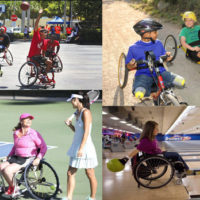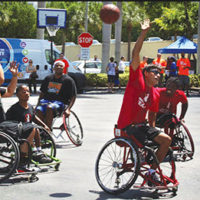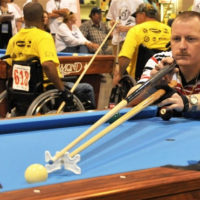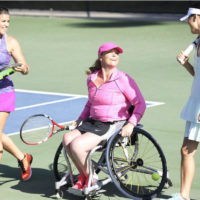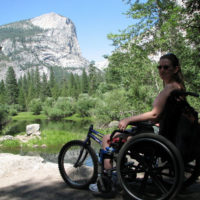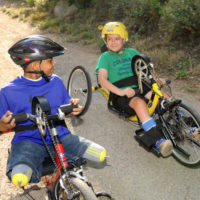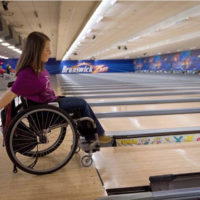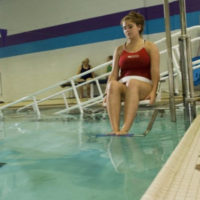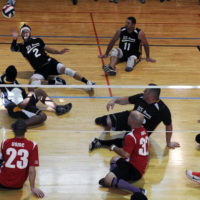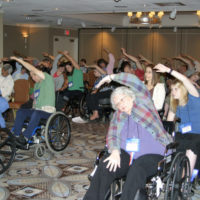Adaptive Sports
Nearly all sports have adaptations that accommodate most abilities. Regardless of your interest, adaptive sports opportunities abound. Whether fun, exercise or competition, adaptive sports are a great way to stay active, be social or just get out there.
Learn about specialized equipment and rule modifications. See demonstrations by layman and experts. Also, find facilities and teams that offer adaptive sports programs.
Among the sports covered are: Wheelchair Basketball; Adaptive Billiards, Pool and Snooker; Wheelchair Tennis; Handicapped Hiking; Adaptive Cycling, Adaptive Bowling; Adaptive Swimming; Sitting Volleyball; Wheelchair Tai Chi; Wheelchair Racing; Horseback Riding; Boccia; Adaptive Paddling – Kayak, Canoe, Outrigger, Rafting, Paddleboarding; Adaptive Rowing/Para Rowing; Power Soccer; and Quad Rugby or Wheelchair Rugby.
If you’re interested in other adaptive sports, email us and we’ll post information for you. Please email us any tips or suggestions that you would like to share with the community and we’ll post that too.
Adaptive sports or para sports are any kind of sport that has been adapted or modified to accommodate participants with physical disabilities. These accommodations include changes to rules and equipment. Countless people – from those who compete in the Paralympic Games to those who play…
Wheelchair basketball is accessible to those with a variety of physical disabilities. The game most of the rules and standards of basketball, with a few adaptations for dribbling and contact. It maintains a 10-foot high basketball hoop and standard court. All of the NCAA rules…
Unlike some other sports, there are no significant modifications to rules for adaptive billiards, pool and snooker. Wheelchair players must keep one butt cheek on their wheelchair cushion (stand-up players must keep one foot on the floor). Physically disabled players are allowed to use a…
Anyone with a physical disability can play wheelchair tennis. And, it is a sport that can be played with able-bodied players. It is played on standard regular tennis courts, with no modifications to rackets or balls. The only difference in rules and regulations is that…
One appeal of hiking is that it combines exercise with getting out in nature, which provides a break from regular routines and a way to unplug. There are many trails, for handicapped hiking, that accommodate all levels of ability. A few things to consider when…
Adaptive cycling or para-cycling accommodates individuals of varying abilities with modified bikes for both street and off-road riding. These include handcycles adaptive tricycles, adaptive tandem bikes, low-step bikes and wheelchair cycles – all of which are available with a number of modifications to gear and…
Bowling is a sport that able-bodied and physically disabled can enjoy together. Lots of adaptive bowling equipment is available to make the sport accessible to most. There are three main categories of adaptations for disabled bowling are related to wheelchairs, balls and rolling. Wheelchair Adaptations…
Aquatic exercise and adaptive swimming are excellent ways for physically disabled individuals to not only get and stay fit, but also to improve range of motion, balance, flexibility, cardiovascular fitness and muscle strength. Almost anyone with a disability can participate in adaptive swimming for fun,…
Sitting volleyball does not require special equipment and the skills are nearly exactly the same as standing volleyball. Players use the same net and ball, but rather than standing they sit on the court. The game follows the same rules as traditional volleyball with a…
Tai Chi is a gentle exercise that helps maintain strength, flexibility and balance. Wheelchair Tai Chi incorporates a wide range of movements of torso, waist, back, shoulders, arms and wrists to help promote upper body mobility and internal circulation. Video Overview (1:36) https://youtu.be/Z130_mxzHzk Demonstration…
